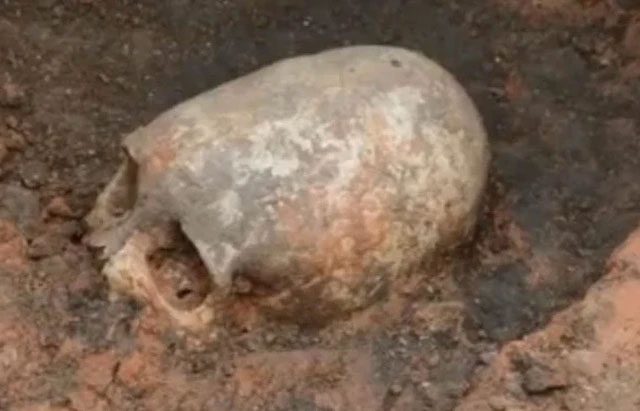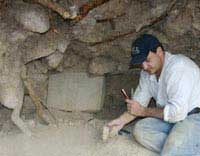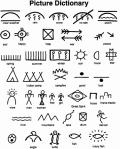Among approximately 400 human skeletons discovered in graves at the cemetery in Catak district of Van province, 30 skeletons show evidence of cranial surgery.

Skull found in Turkey. (Source: Mirror).
On November 28, Turkish news agency Anadolu reported that human skulls dating back approximately 3,200 years were excavated in eastern Turkey, providing evidence of cranial surgery.
According to the news agency, out of around 400 human skeletons found in graves at the cemetery in Catak district, Van province, 30 skeletons exhibit signs of cranial surgery.
Associate Professor Hakan Yilmaz from the Department of Archaeology at Van Yuzuncu Yil University stated that the anthropological findings indicate various methods of cranial surgery, including grooving, cutting, drilling, and skull separation.
Mr. Yilmaz emphasized that this cemetery notably demonstrates the prevalence of cranial surgeries, with surgical procedures typically performed on the right, left, and back of the skull. The aforementioned skulls will undergo detailed examination in the laboratory.
The excavation was conducted under the direction of the Van Museum management and the scientific guidance of Dr. Gulan Ayaz from the Department of Archaeology at Van Yuzuncu Yil University.





















































